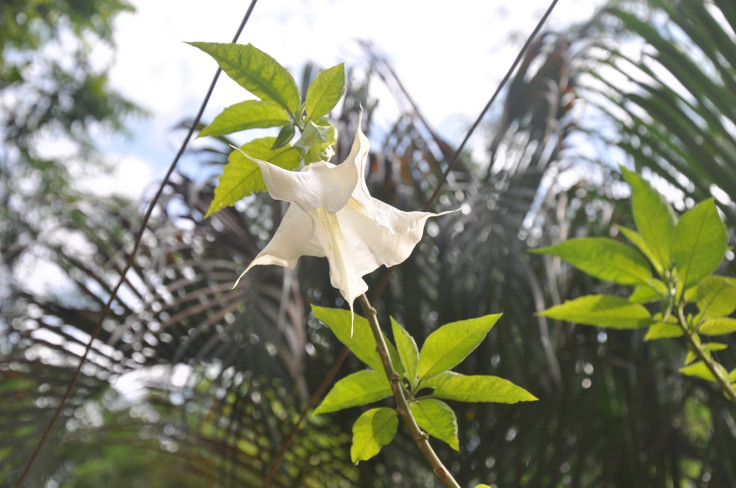Woman drugged with memory-wiping Colombian drug in first case in Europe
A 36-year-old Spanish woman was poisoned with the powder called burundanga.

A Spanish woman has been reportedly drugged with an obscure substance known as 'devil's breath' making this the first known case in Europe. The drug, known as burundanga in Colombia, is made from the seeds of the brugmansia tree and a gram can be bought on the streets of Bogota for around $30 (£23), according to El Pais.
The drug has no flavour, no colour and no smell, and criminals can use the drug by dissolving it in drinks, say reports. Often amnesia occurs and in four hours the powder leaves the bloodstream leaving no trace.
Spain's Medicina Clinica medical journal said that a 36-year-old victim from Mallorca was poisoned by her boyfriend who bought the powder over the Internet. It was not clear whether it was intentional or as mishap.
The incident was said to have taken place in the last few months with the woman rushed to hospital last month suffering from drowsiness, clouded vision and incoherent speech.
She also told doctors that when she recovered she had no memory of what had happened that night.
Criminals in Venezuela and Colombia have been reportedly using the drug to render robbery and sexual assault victims helpless. Burundanga is the popular name for the powder that contains scopolamine, which is used in medicine to treat nausea and motion sickness, among other conditions.
In this instance the woman was admitted to the Son Espases University Hospital, exhibiting "confused behaviour, incoherent speech, mydriasis (very dilated pupils), blurry eyesight and unstable walking" said El Pais.
A urine analysis found no traces of alcohol, cannabis, benzodiazepines, amphetamines, ecstasy, cocaine and opiates. According to the medical journal a friend who took her to hospital said that her husband may have slipped something in her drink and two days after being discharged her ex-husband was said to have admitted to police that he used scopolamine after purchasing it online.
A spokesman for the Spanish health service said: "The fact that we have identified a person who has been drugged with it, suggests its use may be becoming more common in Spain and perhaps throughout Europe."
© Copyright IBTimes 2025. All rights reserved.




















